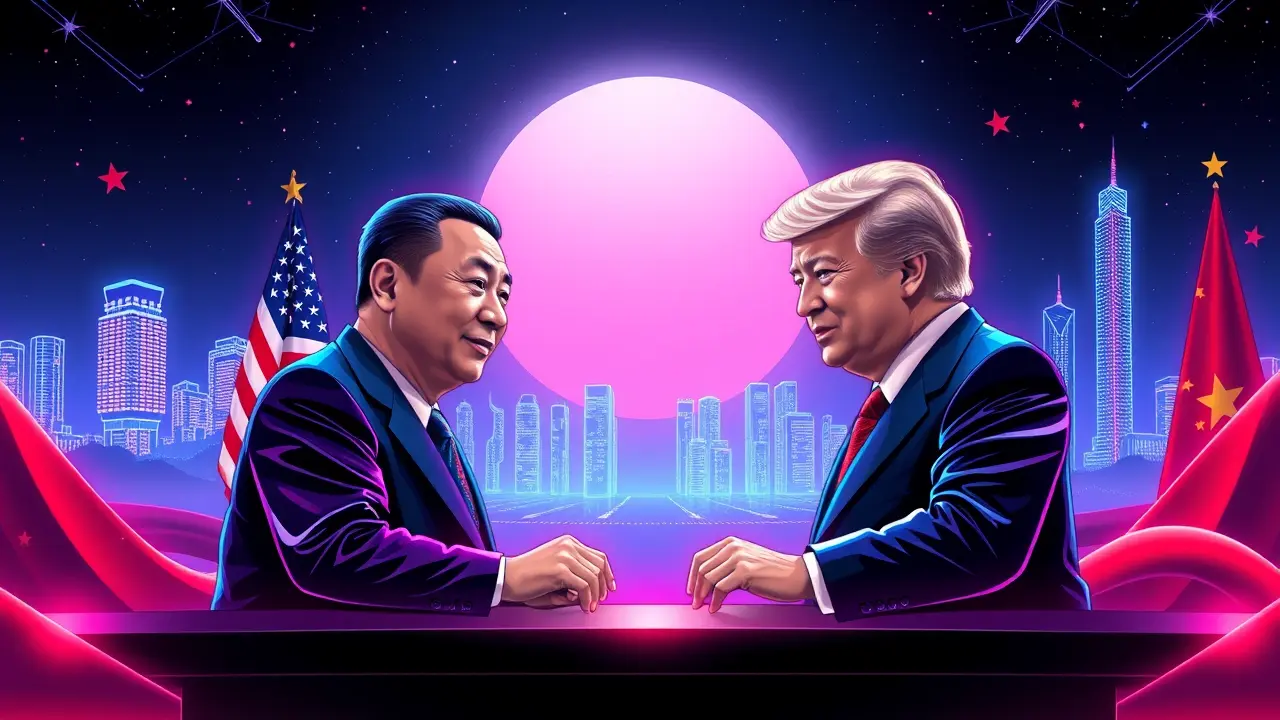
PoliticsdiplomacyBilateral Relations
Xi-Trump Summit Called a Historic Moment by Wang Yi.
RO
Robert Hayes
11 hours ago7 min read
In the grand theater of international diplomacy, where the specters of history often loom larger than the politicians who temporarily occupy its stage, the recent summit between Chinese President Xi Jinping and U. S.President Donald Trump has been christened by China’s top diplomat, Wang Yi, as nothing less than 'a historic moment. ' Such a pronouncement, delivered with the gravitas one expects from Beijing’s foreign ministry, is not merely diplomatic pleasantry but a calculated signal in the high-stakes game of great-power politics, a game whose rules are being rewritten in real time.Wang’s assertion that the meeting would serve to reduce misunderstanding and prevent major fluctuations in the bilateral relationship underscores a fundamental truth often lost in the daily churn of headlines: the U. S.-China dynamic is the central pillar of the 21st-century global order, and its stability, or lack thereof, dictates the economic and security fortunes of nations worldwide. One cannot analyze this development without recalling the precedent of the Nixon-Mao dialogues, which similarly realigned the world’s geopolitical axis, yet the current context is profoundly different, marked not by a bipolar Cold War but by a tangled web of interdependency in trade, technology, and finance, all set against a backdrop of escalating strategic competition.The choice of Shenzhen, China’s vibrant southern tech hub, as the forthcoming host for the Apec summit, which Wang Yi promised would 'present a spectacular event to the world,' is itself a masterstroke of symbolic statecraft. Shenzhen, a city that metamorphosed from a fishing village into a global innovation behemoth in a single generation, stands as a living monument to China’s economic miracle and its ambitions for technological supremacy—a not-so-subtle message to an American administration deeply wary of China’s rise in sectors like artificial intelligence and semiconductors.The talks between Xi and Trump, therefore, must be viewed through this dual lens: as an immediate effort to de-escalate tensions, perhaps over thorny issues like Taiwan or trade tariffs, and as a longer-term, structural negotiation over the very nature of the international system. Expert commentary from veteran analysts suggests that while such summits can act as a pressure valve, the underlying structural frictions—from the South China Sea to technological decoupling—are not so easily resolved.The consequences of failure are stark, potentially leading to a new era of bifurcated technology standards, fractured supply chains, and a return to a form of bloc politics that would impoverish global growth and increase the risk of miscalculation. Conversely, a successful, stable modus vivendi could pave the way for coordinated action on transnational threats like climate change and pandemic preparedness. In the final analysis, much like Churchill’s observation that 'to jaw-jaw is always better than to war-war,' this summit represents a critical, albeit fragile, channel of communication between two powers whose relationship will define the epoch, for better or for worse.
#featured
#Xi Jinping
#Donald Trump
#Wang Yi
#US-China relations
#diplomacy
#APEC summit
#Shenzhen
Stay Informed. Act Smarter.
Get weekly highlights, major headlines, and expert insights — then put your knowledge to work in our live prediction markets.
Related News
© 2025 Outpoll Service LTD. All rights reserved.













